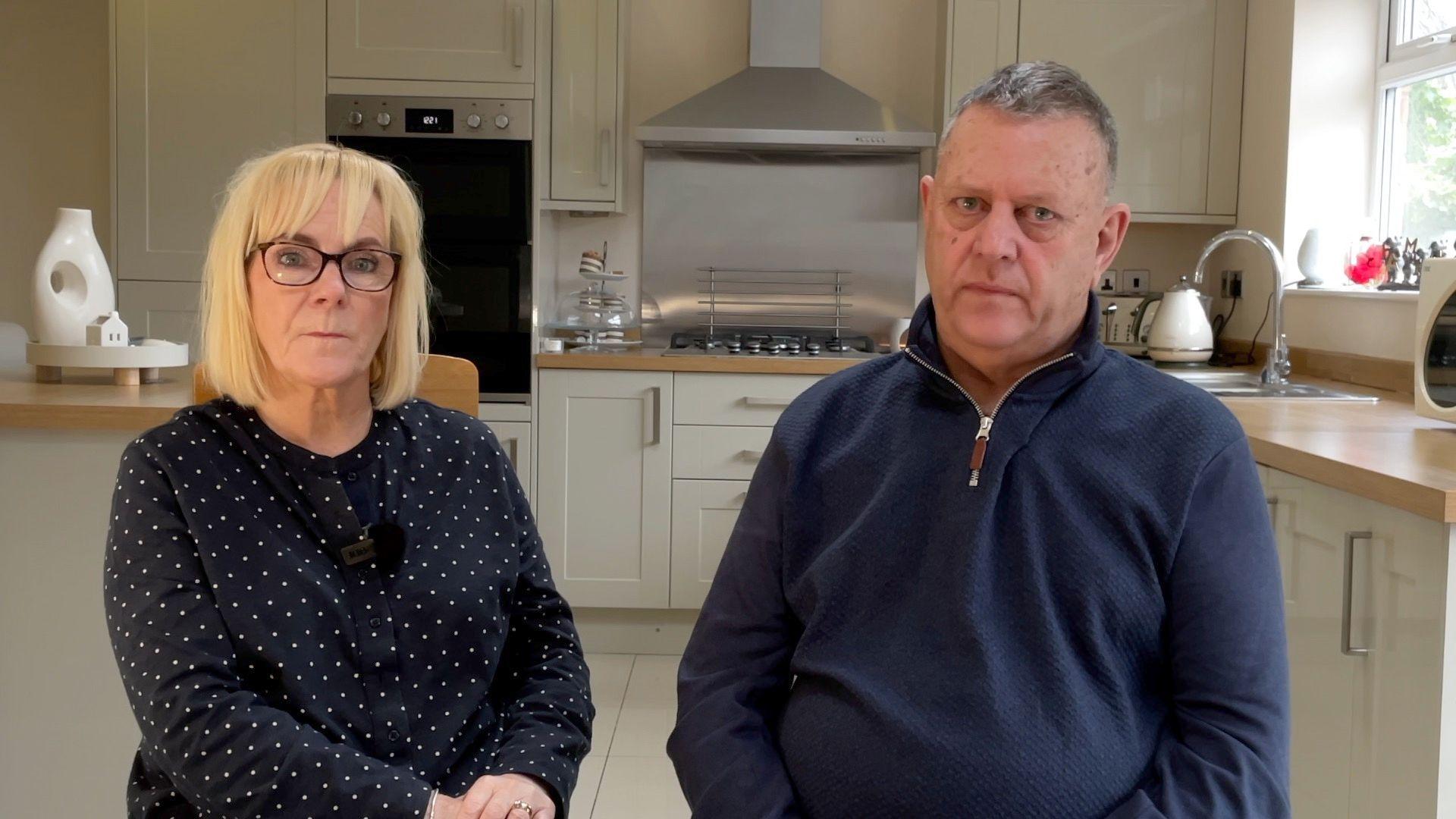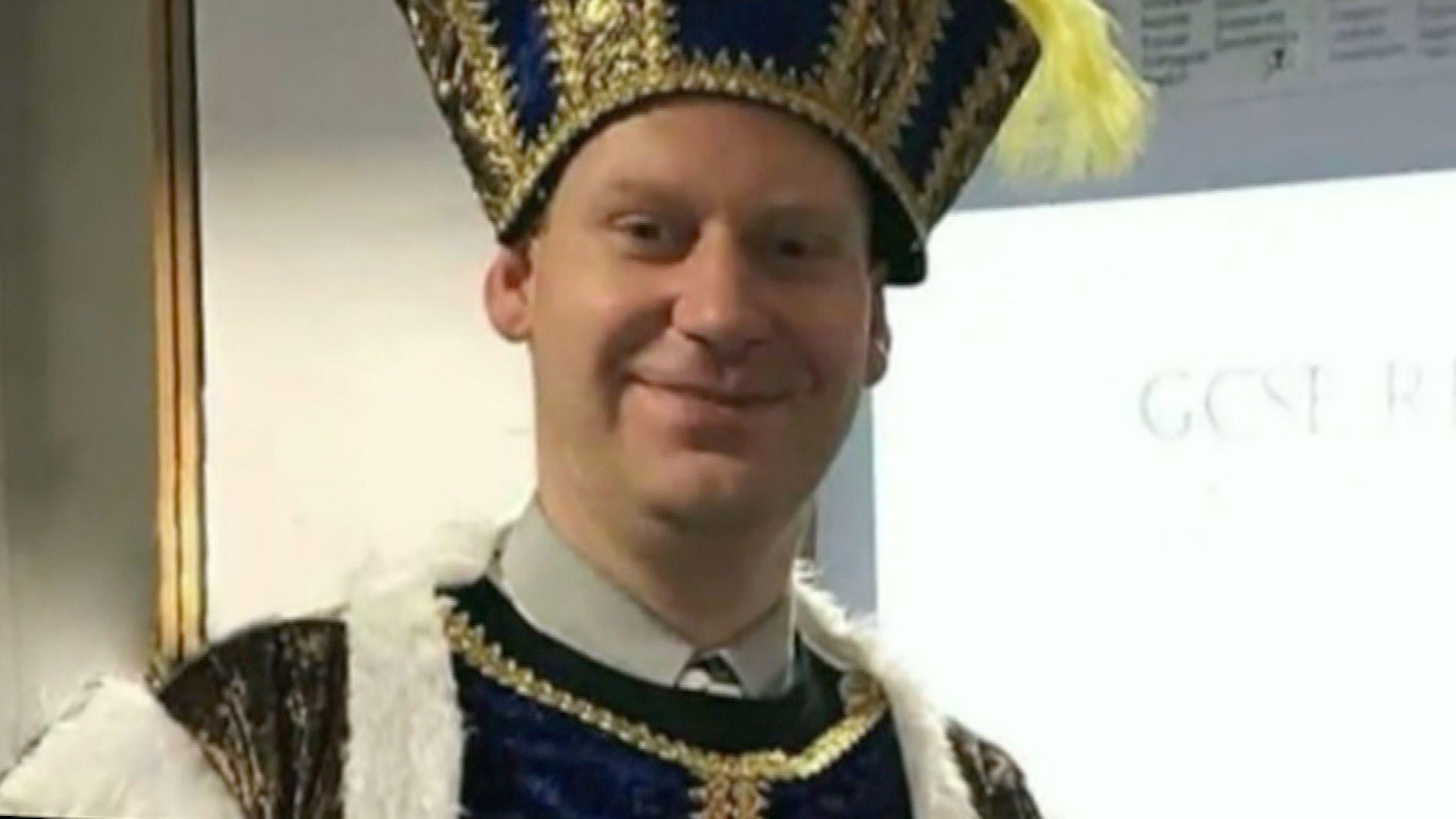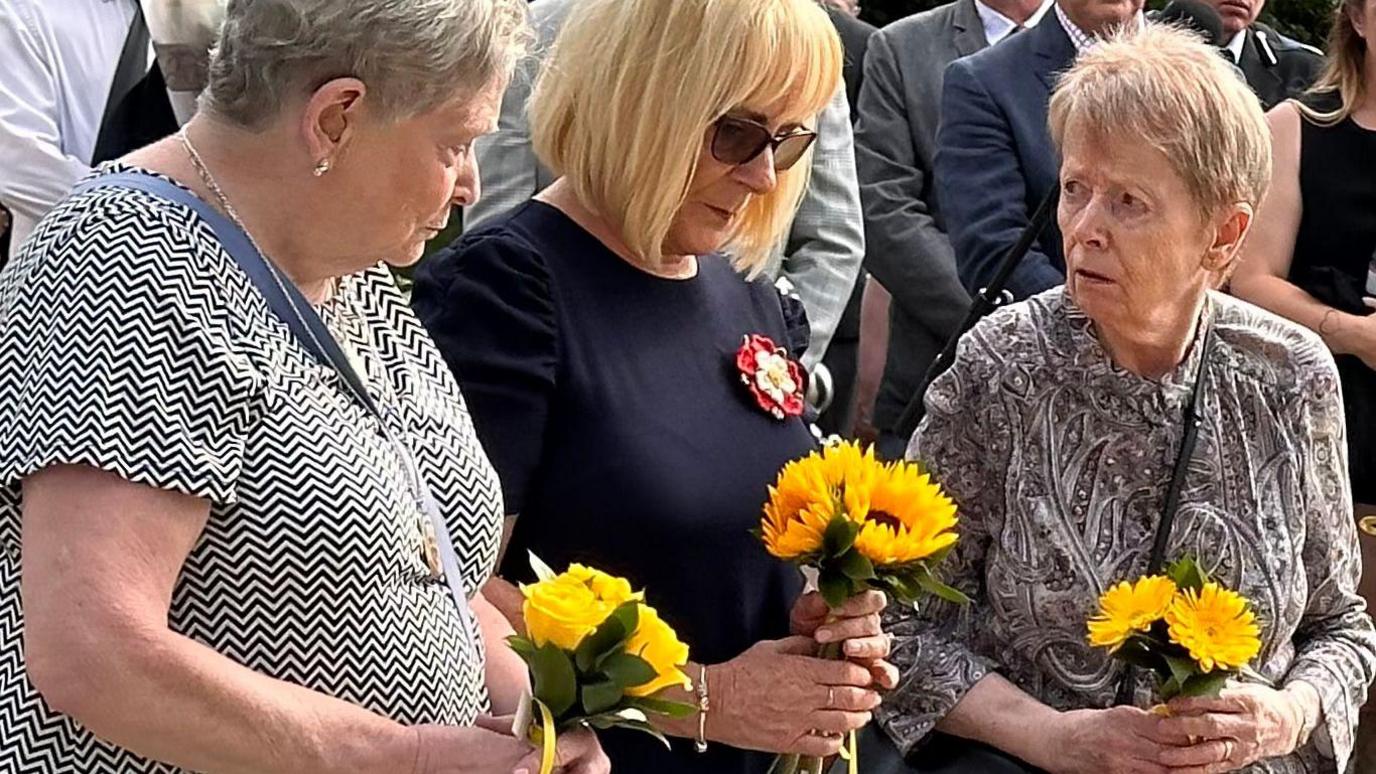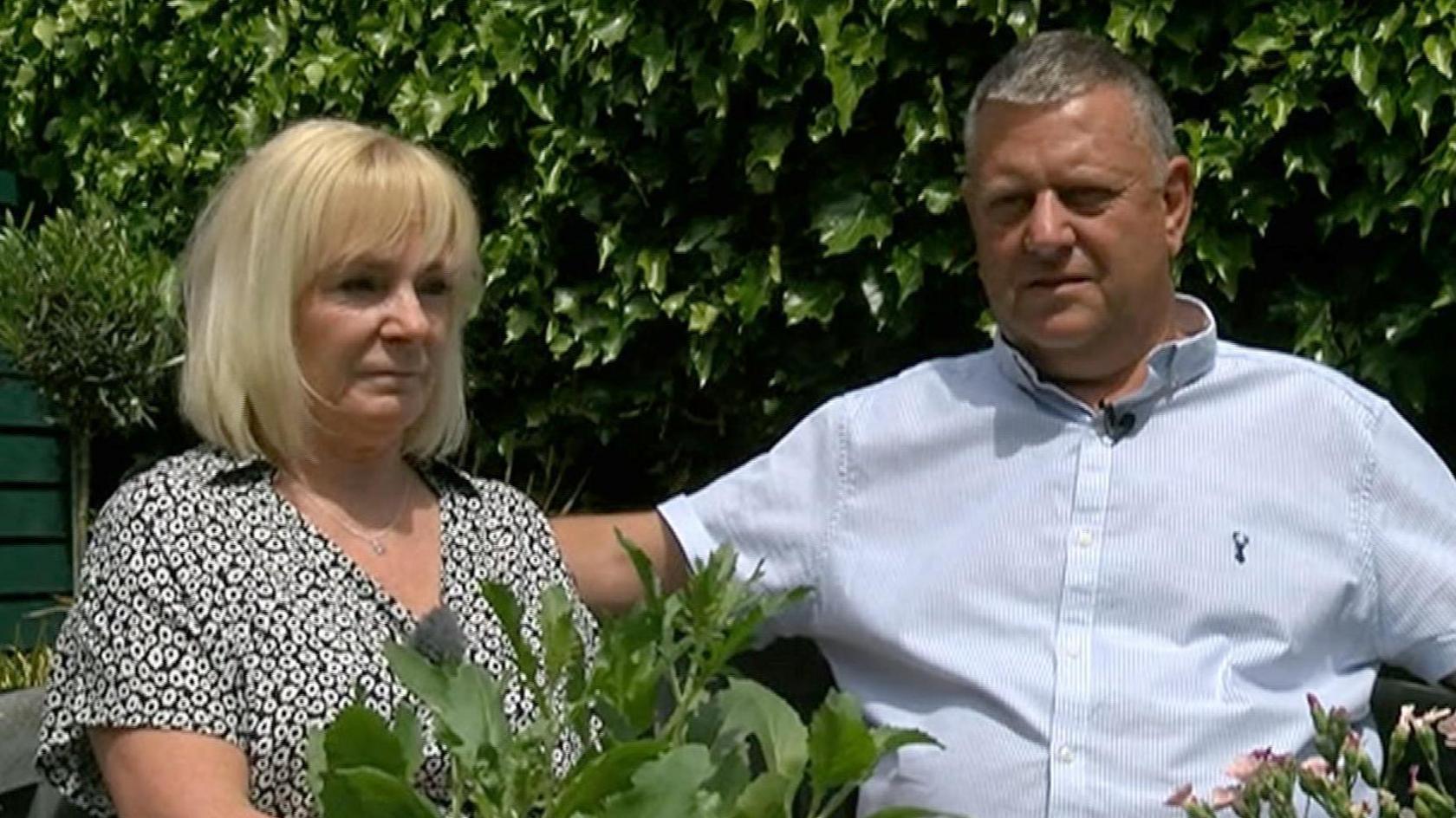Son's death in Reading attack 'still feels so raw'

Jan and Gary Furlong's son was killed in Reading in 2020
- Published
On the weekend of 20 June 2020, three families had a knock at their door. It was the police. What they had to tell them would change their lives forever.
Their sons and brothers James Furlong, 36, Joe Ritchie-Bennett, 39, and David Wails, 49, had been killed in an execution-style knife attack in Reading’s Forbury Gardens.
“It still feels so raw,” says James’ mother Jan.
She describes how she still has moments when she realises she will never see him again.
“That hurts,” she adds, heavy with emotion.
Now the criminal proceedings and lengthy inquest process are over, she and her husband Gary, from Liverpool, are able to share their experiences since their son's death, for the first time.

James Furlong taught history and politics at The Holt School in Wokingham
They have pledged to go back to Reading on the anniversary of the attack every year, until the day they die.
But Gary describes going into the park as “one of the most difficult things”.
“It’s so very, very hard because Forbury Gardens doesn’t define James," he says.
"It’s where the horrible, horrible thing happened and I don’t want to remember him for that. The other stuff is more important for us now.”
His wife agrees, remembering her son as a “fun, witty, kind and inspirational” man who loved to teach.
James was head of history, government and politics at The Holt School in Wokingham, Berkshire.
“After the gardens, where it’s so sad, then we go to the school where he was so happy and we feel him there,” Jan says.
'Living in a bubble'
The years since James’ death have been torturous, as the families have struggled through numerous criminal court hearings, an appeal by the killer and an inquest - unable to discuss things openly, for fear of prejudicing the legal proceedings.
“It’s like your life’s turned upside down," Jan says.
"Courts, judges and police, and a world that you’ve never been a part of, ever, and then you’re trying to understand it all.”
Her husband describes feeling as if they have been "living in a bubble”.
“There’s always been something we’ve had to raise, something we’ve had to challenge," he says.
"Things sometimes we’d have to almost fight for. We’ve had to deal with that ourselves.”

Mothers of the victims were united in grief on the third anniversary of the attack
The couple say they have done it for James, as well as his friends Joe and David, whose mothers they stay in touch with.
Jan says they exchange phone calls and messages “because there’s only us that really know how we feel, and we talk to each other, so as mums we support each other that way".
"We’re all heartbroken,” she says.
Joe, who worked for a pharmaceutical company in Reading, was a US citizen who moved to the UK 15 years before the attack.
His family previously described him as "brilliant and loving".
While David was a scientist who worked for a global chemicals firm, and was described as "always happy" and a person who "always made people smile".
The three friends were "great supporters" of the LGBT community, Reading Pride's chief executive Martin Cooper previously said, describing them as "true gentlemen".
Reflecting on other attacks in London and Manchester, as well as Reading, Jan and Gary's main priority now is ensuring all the lessons learned are put into practice by the authorities.
They want to help prevent future attacks and stop other people “having to live our nightmare”.
“We won’t, as families, allow lessons not to be learned," Gary adds.
Khairi Saadallah was handed a whole-life jail term after being convicted under anti-terror laws for the murder of the three friends and attempting to murder three others at his sentencing in January 2021.
A permanent memorial stone to the men was unveiled in Forbury Garden in 2023.

Mr and Mrs Furlong are keen to ensure lessons are learned from the attack
Follow BBC South on Facebook, external, X (Twitter), external, or Instagram, external. Send your story ideas to south.newsonline@bbc.co.uk, external or via WhatsApp on 0808 100 2240, external.